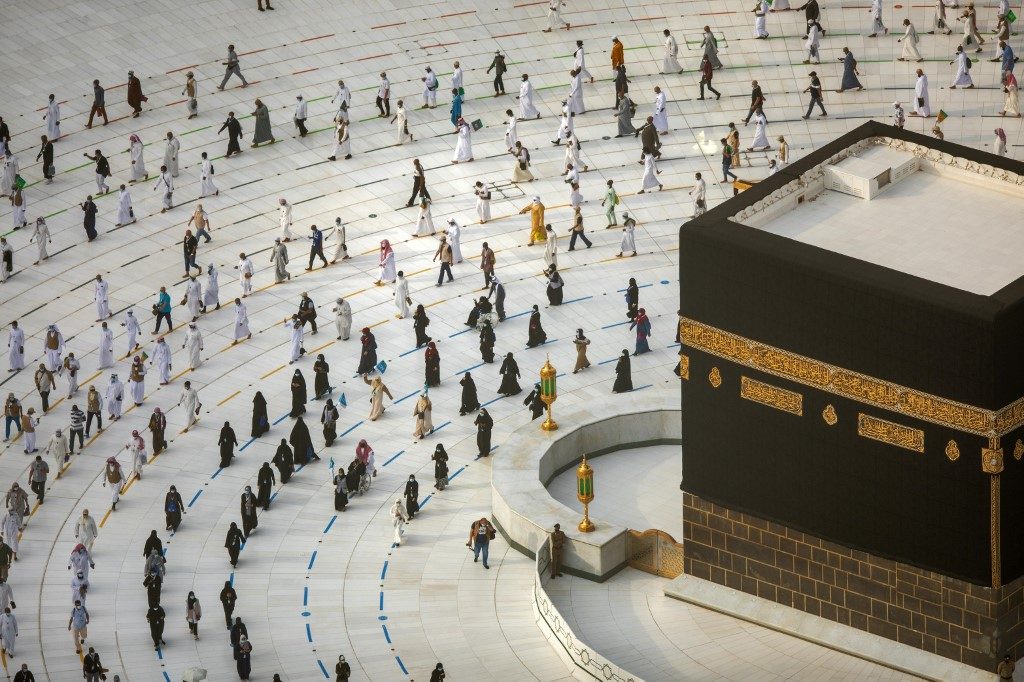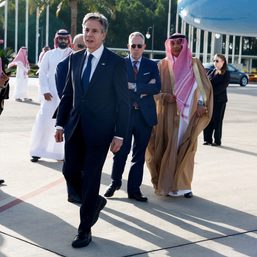SUMMARY
This is AI generated summarization, which may have errors. For context, always refer to the full article.

Muslim pilgrims circled Islam’s holiest site along socially distanced paths Sunday, August 2, in the final ritual of the hajj, the smallest in modern history as Saudi authorities sought to prevent a coronavirus outbreak.
Only up to 10,000 Muslims took part in the hajj, a far cry from the 2.5 million who took part in the 5-day annual pilgrimage last year.
Masked pilgrims threw pebbles at a wall symbolising Satan in Mina, close to the holy city of Mecca, on the final day of hajj, state media reported.
Instead of gathering the pebbles themselves as in past years, they were handed them bagged and sterilised by hajj authorities, to protect against the novel coronavirus.
Pilgrims returned to the Grand Mosque in Mecca later Sunday to perform a final “tawaf”, or circling of the Kaaba – a cubic structure towards which Muslims around the world pray.
Holding the ritual in the shadow of the pandemic required “double efforts” by Saudi authorities, King Salman said on Friday after being discharged from hospital following surgery to remove his gall bladder.
“The hajj this year was restricted to a very limited number of people from multiple nationalities, ensuring the ritual was completed despite the difficult circumstances,” said the kingdom’s 84-year-old ruler.
Health authorities said no coronavirus cases were reported at the holy sites during the hajj.
The pilgrims, who were required to observe social distancing and subjected to regular temperature checks, will go into mandatory quarantine after the hajj, authorities said.
The ritual, one of the five pillars of Islam and a must for able-bodied Muslims at least once in their lifetime, is usually one of the world’s largest religious gatherings.
But local media said up to 10,000 people already residing in the kingdom were participating this year.
The hajj ministry had initially said around 1,000 pilgrims would be allowed.
The hajj typically costs thousands of dollars for pilgrims, who often save for years as well as endure long waiting lists for a chance to attend.
But this year, the Saudi government is covering the expenses of all pilgrims, providing them with meals, hotel accommodation and health care, worshippers said. – Rappler.com
Add a comment
How does this make you feel?





There are no comments yet. Add your comment to start the conversation.